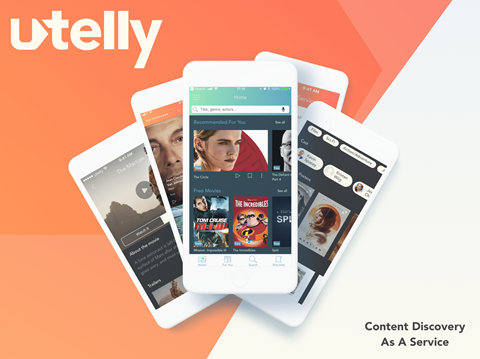In the second instalment of a two-part feature we hear from three startups that have employed new technologies to optimise video, enhancing media workflows and an app to maximise TV subscriptions.
Startup and scale-up media companies are making waves globally, with innovative opportunities enhancing and changing the media landscape.
IBC365 spoke with three startups:
Aiconix.AI
Founded: 2017
Aiconix.AI is a software company that uses artificial intelligence (AI) and machine learning (ML) for video optimisation. The technology analyses the video during production to seamlessly integrate the correct metadata into the video. This allows creators to adapt the content according to the needs of the targeted audience to drive traffic and clicks.
![]()
Why was Aiconix.ai formed?
Aiconix was formed to optimise how media related businesses can access, handle and process image related information. Our mission is to revolutionise the workflow and production capabilities for video producers using AI and video stitching patterns.
For video producers, creativity will always remain the most important part of the job. Aiconix aims to support this creativity with its technology that effectively uses recognition of patterns in existing videos as well as AI prediction in user behaviour.
Where does your funding come from?
In the first year of the Aiconix’s we received funding by a scholarship of the federal ministry of economics and energy. This contained a salary for the three founders as well as money for material expenses and training.
Following on from this boost we received €50,000 from investment of the next media accelerator programme and opened access to a great network of media companies.
Our most recent funding was the promotion of innovation through the city of Hamburg that granted us €150,000.
What is your biggest milestone and achievement?
Achieving financial investment as a startup, this is often the greatest hurdle. Earning the reputation of a business with a sound solution can be challenging and in our case the promotion of innovation and expanding our R&D has been successful. On the product side we have an MVP online and that we are testing with our first pilot customers.
How does your mission and company objective stand out against your competitors?
Aiconix was formed to fill a gap in the marketplace, we believe our solutions are unmatched with any competitor because we are not only a distributor of technology, we also solve a problem from the perspective of the content creator.
What challenges are you faced with as a startup?
Funding and recognition are the greatest hurdles. To be competitive in the market we need to hire people that can strengthen our team and to increase the speed of our developments. The challenge here is financial however through the funding of the next media accelerator and the “Innovationsförderbank Hamburg” we have overcome this barrier.
Where do you see Aiconix in 12 months’ time?
Currently we are still in a development stage, refining and improving our offering. There are some customer requirements which we will be able to satisfy in a few weeks and others that will need more time in development.
In 12 months, we will have our MVP online that is predicting user behaviour before the video is online and with this product we plan to scale up.
Limecraft
Founded: 2010
Media technology production company, Limecraft offers a comprehensive collaborative environment for film and video production. Designed to deliver maximum productivity during the shooting, story editing and post-production processes.
The method of collaboration enables the producer to explore new distribution venues and creative opportunities while the production facilities, producers and broadcasters build their private cloud with our workflow solution that seamlessly integrates with existing storage and media asset management services.

Why was Limecraft formed?
We found that the market was looking for a solution to enable customisable products with direct delivery. Limecraft was created with the ambition to help industrialise the media industry. Specifically our mission is to replace all unstructured information – scripts and production reports – with structured data.
This enables programme makers and producers to virtually prepare their content without touching the actual raw material and subsequently execute the editing decisions automatically.
What was the main barrier to success as a startup operating in the media sector?
Limecraft is a cloud-based offering and in 2010 we experienced that there were too many hurdles to adoption. However, the rules of the game changed rapidly overnight with online distributors like Netflix and Amazon maximally exploit their economy of scale.
In order to protect the cultural diversity within Europe, we are urged to think out of the box and all of a sudden cloud-based technologies become acceptable, lowering operational costs and enabling co-production.
Where does your funding come from?
We largely developed the company on our own strength. To date, Limecraft spent around €7.5 million in R&D with 30% of those funds paid-in equity owned by the founders and a select group of business angels. A further 30% comes from research grants and 40% comes from certain early adopters that materially participated in additional development.
What is your biggest milestone and achievement?
The biggest challenge for Limecraft was that we could not rely on the principles of a lean startup. The value for our customers lies in the holistic approach and the ability to manage the workflow end-to-end. Working with extraordinary system engineers, we managed to do what others said was totally impossible.
How does Limecraft’s company objective stand out against your competitors?
We believe digitisation has only just begun and it is our mission to help media producers of all breeds and sizes to manage the ever growing complexity of their digital production workflow. Creating more efficient products, much faster compared to a conventional workflow and for a significantly lower cost.
We champion streamlined operations that automate processing across several steps of the production process from ingesting content, transcribing interviews and creating subtitles.
What challenges are you faced with as a startup?
The biggest challenges are identifying the right customers who are willing to take a risk especially when you don’t have a strong financial backing, which means the product offering needs to be strong and viable.
Having a valuable solution to a specific problem that all prospect customers have, in a niche area where there is no competition, is the key to convince customers to consider a less conventional approach.
Utelly
Founded: 2013
Utelly is a free app to enhance and maximise the use of TV subscriptions offering users a TV guide of all channels and programmes. Users can browse what is scheduled and the instant play enables content to be viewed on a TV or set top box.
Utelly has a recommendation toolkit designed for TV professionals to reach the right audience and connect them with their desired content.

Why was Utelly formed?
We believe that TV content discovery is broken. In the past TV was simple with a few channels on a single screen. Today’s landscape has shattered the traditional model and broadcasters need to capitalise on audience engagement. We saw the trouble audiences were having in finding content they wanted to watch so we decided to create a platform which brings all content sources into a single app.
What are the main barriers to success as a startup operating in the media sector?
Companies operating in this industry are typically massive, and whilst they offer great opportunities for a startup to do business with, they also bring the challenges of working with much larger corporate enterprises. It was therefore paramount to innovate and adapt.
As we engage with large organisations, the biggest challenge is to get the wheels in motion, from procurement to legal and compliance. We need to run multiple processes in parallel to close deals and deliver value as early as possible for our clients.
We market our content discovery solutions to organisations much larger than us so we’ve got to make sure we maintain our agility as we continue to innovate.
Internally, we run as an agile team, with a two weeks sprint cycle for any project we do. For our clients, we offer to embed some of their resources into this cycle, which gives us a competitive advantage over the more traditional companies operating in our space.
Where does your funding come from?
Utelly was initially bootstrapped by its two founders, then between mid-2014 and 2017, we raised $2 million from venture capitalists and investment angels.
What is your biggest milestone and achievement?
Signing a tier one operator as one of our clients in our content discovery SaaS platform. From there, we approached the market in other geographies, as well looking for technology partnerships where our solutions can be integrated. Our goal is to have our products integrated, ready to launch in 60 days or less from deal signed.
How does your mission and company objective stand out against your competitors?
Utelly started out as a B2C product, aiming to solve how consumers find what to watch on TV, on-demand, on catch-up. Over time, we understood we would be much stronger on the shoulders of giants so we evolved our solution into a B2B2C product, with the Consumer in our DNA, and we bring first-hand experience of mobile-first video products.
In the end, our SaaS solution appeals to Broadcasters, Telcos and TV operators because we share the same urge to delight the consumer, whilst meeting Enterprise SaaS requirements.
Where do you see Utelly in 12 months’ time?
Our technology offers the aggregation of metadata and discovery services including: one search options, a powerful recommendation engine, trends from popular to editorial picks. It is designed so consumers can save time and money by making the most of their subscriptions.
We are currently working on partnerships with industry leading providers on set top boxes and OTT solutions. We are confident a large number of consumers will benefit from our technology in 2019.
Any success stories you can share?
Our largest deployment is yet to be announced and we are very excited for what is in the immediate pipeline, watch the UK market at the beginning of 2019.












![Adeline Platform Help[64]](https://d3dh6of9cnaq4t.cloudfront.net/Pictures/100x67/0/6/9/30069_adelineplatformhelp64_996092_crop.png)








No comments yet